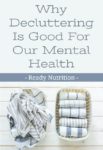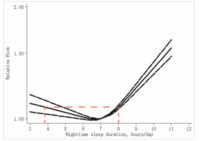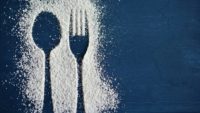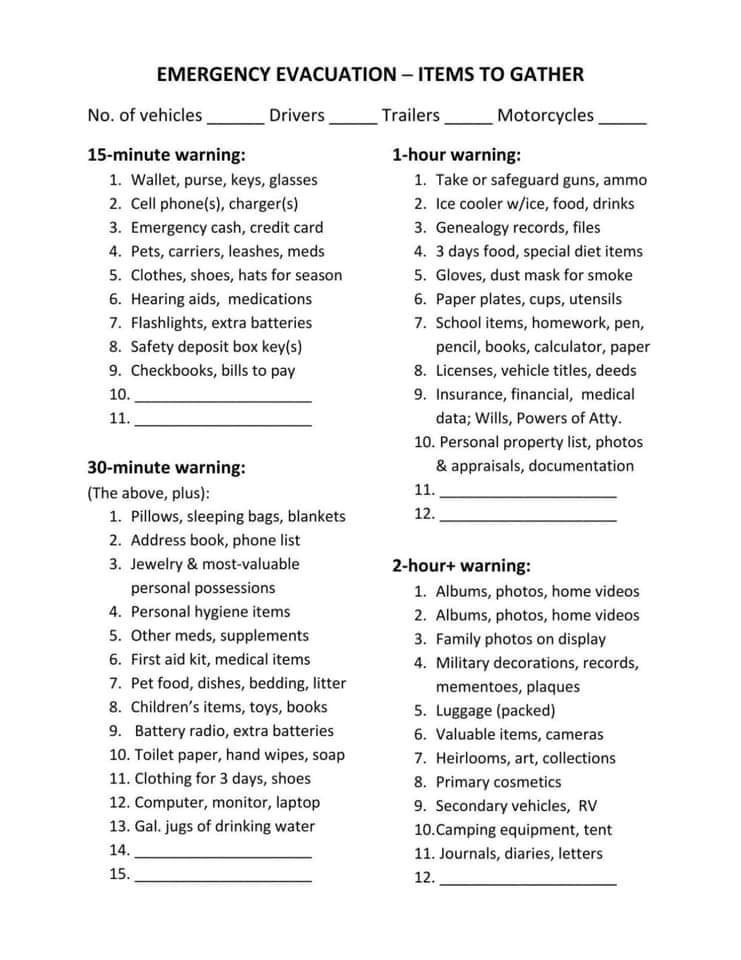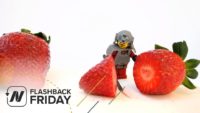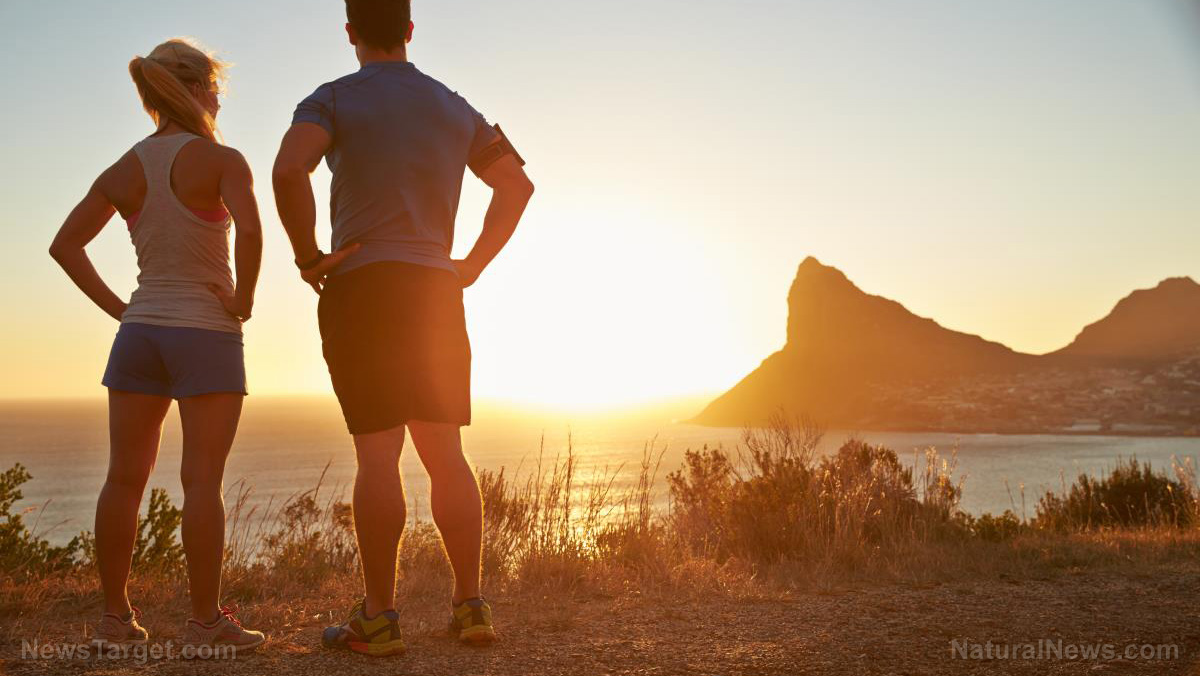By Arsenio Toledo (Natural News) Researchers from the Martin Luther …read more Source: Natural News
By Chloe Morgan by Daisy Luther That magic moment when you go to wash your hands….and nothing comes out of the tap. Late on one Friday evening – you know, too late to … Read the rest The post 8 Prepper Hacks for Cleaning Without Running Water appeared first on The Organic Prepper. …read more Source: Organic Prepper
As food consumed in the U.S. becomes more and more processed, obesity may become more prevalent. Through reviewing overall trends in food, George Washington University (GW) researcher Leigh A. Frame, PhD, MHS, concluded that detailed recommendations to improve diet quality and overall nutrition are needed for consumers, who are prioritizing food that is cheaper and more convenient, but also highly processed. Her conclusions are published in a review article in Current Treatment Options in Gastroenterology. “When comparing the U.S. diet to the diet of those who live in “blue zones” — areas with populations living to age 100 without chronic [More]
By Dr. Mercola Staying fit as you age is about far more than aesthetics. Increasing research shows that maintaining healthy levels of body fat and greater muscle mass has an effect on your brain health and even your rate of cognitive aging. It’s known, for instance, that being obese in midlife and early late-life is associated with worse cognitive aging.1 What’s more, the amount of muscle and fat you have may be a more important factor in how your level of fluid intelligence decreases over time than your chronological age. Your chronological age, i.e., your …read more Source: mercola
By Dr. Mercola Tom Stearns, who has both an entrepreneurial spirit and a desire to get back to the roots of where his food comes from, started saving seeds when he was 18 years old. The drive to connect to the source of his sustenance in the most direct way possible led him to begin exploring how to grow seeds. “Growing food wasn’t enough,” he said in an episode of “Growing a Greener World,” a PBS series. “I was curious about the growing seeds and saving seeds part of it.” It’s an aspect of food production …read more Source: mercola [More]
By Sara Tipton As Americans, we have a lot of clutter. I know I used to! But decluttering has many benefits, including those that positively impact our mental health. As a society, we are busier and more stressed-out than ever. This makes it easy to see why the Kon Mari method of decluttering and minimalism trends are so popular right now. And to be fair, they aren’t popular with everyone. Some people just always have a lot of stuff and will always have a lot of stuff. Have you ever been in a house that is so filled with stuff [More]
By Dr. Mercola In his popular and oft-cited book, “Why We Sleep: The New Science of Sleep and Dreams,” professor Matthew Walker, Ph.D., founder and director of the University of California Berkeley’s Center for Human Sleep Science, details many supposed benefits of longer sleep. I’ve frequently referenced Walkers book in a number of my previous articles about sleep, which is why I became more than a little curious when I came across the work of Alexey Guzey.1 He claims to have spent more than 130 hours over the course of two months investigating the claims …read more Source: mercola
By Darnel Fernandez (Natural News) Type 2 diabetes is the …read more Source: Natural News
How much sleep did you get last night? If the answer is “not enough” you’re hardly alone. According to Gallup’s estimates, almost half the people you’ll run into today are suffering from some level of sleep deprivation. We often dismiss a little morning fatigue as an inconvenience, but here’s the reality. Missing sleep worsens your mood, weakens your memory, and harms your decision-making all day long. It scatters your focus, prevents you from thinking flexibly, and makes you more susceptible to anxiety. (Ever wonder why problems seem so much more overwhelming at 1:00am than in the first light of day? [More]
By Michael Greger M.D. FACLM The sugar industry’s response to evidence implicating sweeteners in the obesity epidemic. …read more Source: nutritionfacts.org
By Thomas Perry Source: Study: Eating More Mushrooms Could Help Fight Off a Decline in Brain Function For more content like this visit REALfarmacy.com. It’s common knowledge that mushrooms are packed with a nutritional punch — but did you know that this everyday food item may be able to lower the risk of cognitive decline in older people too? Research from the National University of Singapore (NUS) suggests seniors who eat more than two standard portions of mushrooms — equivalent to […] Source: Study: Eating More Mushrooms Could Help Fight Off a Decline in Brain Function Learn more at …read [More]
By Tess Pennington Hundreds of times each year, transportation and industrial accidents release harmful substances, forcing thousands of people to leave their homes on a moments notice. Natural disasters such as fires, floods, tornadoes and hurricanes also cause evacuations. Almost once a year, people along the Gulf and Atlantic coasts evacuate in the face of approaching hurricanes. FEMA Advance notice is not always given when it comes to evacuations. In certain circumstances, you could be given as little as a few minutes to leave. Would you be ready? Many preppers suggest having a bug out bag on standby when there [More]
By Jeff Consuming potato puree during prolonged exercise works just as well as a commercial carbohydrate gel in sustaining blood glucose levels and boosting performance in trained athletes, scientists… …read more Source: Natural Blaze
By Michael By Patricia Burke Lessons from Morning Musical Beds When my youngest son was a toddler, at about 4 a.m. nearly every morning, he would stand in our bedroom doorway, crying that he was cold…. …read more Source: Natural Blaze
By Michael By Carly Wood, University of Westminster As many as one in six adults experience mental health problems like depression or anxiety every week. And not only is mental ill-health one of the most common… …read more Source: Natural Blaze
By Michael Greger M.D. FACLM Does the fructose naturally found in fruit and fruit juice have the same adverse effects as excess “industrial fructose” (table sugar and high fructose corn syrup) and if not, why not? …read more Source: nutritionfacts.org
By Michael Greger M.D. FACLM Four simple health behaviors may cut our risk of chronic disease by nearly 80%, potentially dropping our risk of dying equivalent to that of being 14 years younger. …read more Source: nutritionfacts.org
By Michael By Julie Broderick, Trinity College Dublin It can be hard to include exercise in our busy lives, despite the best of intentions. There are a lot of reasons people don’t exercise, and a lot of… …read more Source: Natural Blaze
By Dr. Mercola During a six-week period every summer, fishermen head out to Bristol Bay, Alaska, to catch their share of wild sockeye salmon. An estimated 38 million of the fish return to the bay each year, supporting a brief economy that creates 14,000 jobs and $1.5 billion in revenue.1 In a report prepared for the Bristol Bay Regional Seafood Development Association, it’s noted that the area is the world’s most valuable wild salmon fishery, supplying nearly half the global supply of wild sockeye salmon.2 Even as other Alaskan fisheries have suffered — due to pollution, deforestation, dams, toxic algae [More]
A strict vegetarian diet has long been scrutinized for the toll it can take on a person’s physical wellbeing, but a new scientific report raises another important question: what about a vegetarian’s mental wellbeing? There’s a good deal of medical literature associating deficiencies of B12 and omega-3 with depression. These essential nutrients are most commonly found in meat, fish, and other animal products. So it’s not necessarily surprising to hear that vegetarianism is linked with depression. Even so, the report details a number of worrisome findings, citing data from a compilation of surveys examining different groups in different countries but [More]
By Daisy Luther Editor’s Note: Long-time popular commenter 1stMarineJarHead recently returned from a trip to the big city and had some interesting observations about the differences between Urban OPSEC and Situational Awareness versus … Read the rest The post Some Observations on Urban OPSEC and Situational Awareness appeared first on The Organic Prepper. …read more Source: Organic Prepper
By Dr. Mercola While the pitfalls of too little sleep have been well documented, there are also risks of sleeping too much, which is generally defined as more than nine hours a night. Specifically, excessive sleep, along with long midday naps, may increase your risk of stroke, according to a Chinese study involving 31,750 people.1 It’s unclear exactly why excess sleep increases stroke risk, but long nappers and sleepers are more likely to have increased waist circumferences and inactive lifestyles, both of which are risk factors for stroke. However, other mechanisms could also be at play, as the relationship between [More]
By Darnel Fernandez (Natural News) When it comes to staying …read more Source: Natural News
By Brian When you first start with CBD, you’ll have to find the right dose for you. Because it’s a supplement and not federally regulated, there aren’t any hard and fast rules when it comes to dosing. You’re… …read more Source: Natural Blaze
In the 60 years since Aaron Lerner and colleagues isolated melatonin, the hormone has been found to affect every system of the body. Although it is primarily synthesized by the pineal gland, melatonin is also produced in peripheral tissues and serves numerous critical physiological functions.1 In mammals, its synthesis in the pineal gland is timed by the suprachiasmatic nucleus via projections to the paraventricular hypothalamic nucleus. Melatonin is most well-known for its role in regulating circadian rhythm and sleep-wake cycles.1 Pineal melatonin production mainly occurs at night and is dependent on darkness, as light blocks its release. In addition to [More]
By Michael A study out of the University of Hyogo in Awaji, Japan, details the stress-reducing benefits to office workers that even a small plant situated within easy viewing can impart. Masahiro Toyoda, Yuko… …read more Source: Natural Blaze
By Daisy Luther by Daisy Luther We’ve talked about drinking water before other beverages. We’ve measured and marked our starting points. Yesterday we figured out how much we normally move. Today, I want … Read the rest The post 2020 Prepper Health and Fitness Challenge: Day 4 appeared first on The Organic Prepper. …read more Source: Organic Prepper























